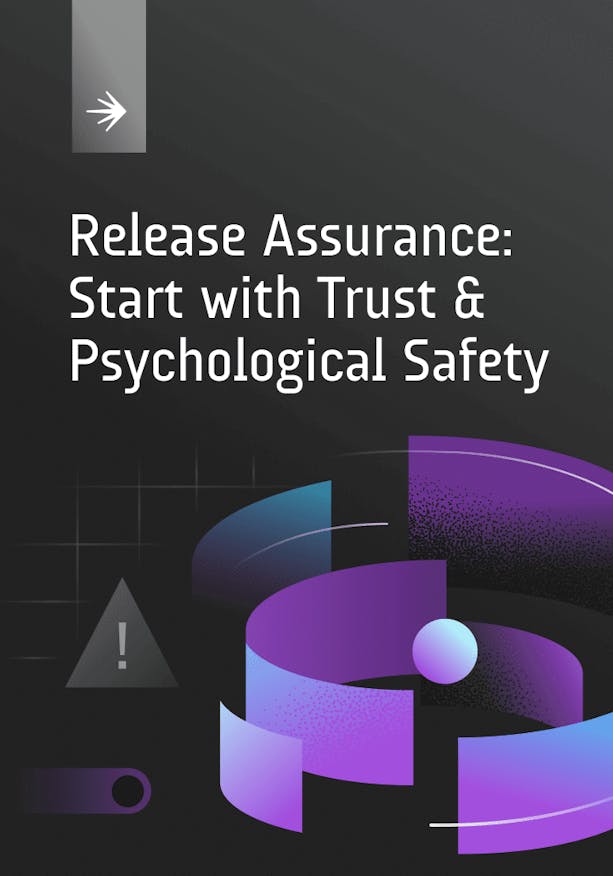Release Assurance
Why Innovative Software Delivery Starts with Trust and Psychological Safety

Introduction
“Innovation is the ability to see change as an opportunity, not a threat,” said Steve Jobs. Without getting into Jobs’ leadership style, if you’ve ever worked on a software team where you dread your manager discovering that you deviated from standard release processes, you know it’s not always that simple.
Creating something truly innovative, by design, means doing something different. To get outside the status quo, you’ve got to take a risk. And if your company is too risk averse, it’s going to be very tough to do any of these things.
That’s one of the reasons trust and psychological safety, especially when practiced at the team and company levels, are so powerful: your team gains the ability to be fearless in attempting new features and processes.
Psychological safety is a broad concept that has implications for multiple aspects of an organization’s culture. However, as pressures increase to deliver more software updates faster, it’s clear our software development efforts need safety. That extra boost in confidence not only benefits developers and entire organizations, but also those on the receiving end of software updates.
Through this report—built around responses from 500 software developers across a range of industries and job titles—we explore:
- Factors that limit risk taking in the era of DevOps and continuous delivery
- How a fear of failure when releasing software dramatically impacts various areas of business, including retention; 67% of developers say they have either quit a job due to pressures around minimizing mistakes or know someone who has
- The three practices companies can leverage to remedy a fearful culture and give their teams some safer headspaces in the process
Ultimately, we all want better software for ourselves and others. And we’re not going to get there without some room for error, intentional or otherwise.
What is psychological safety?
There are varying ways to describe psychological safety, but we like this definition from Amy C. Edmondson, Novartis Professor of Leadership and Management at the Harvard Business School and one of the pioneers on the topic:
“I define psychological safety as a belief that one will not be punished or humiliated for speaking up with ideas, questions, concerns or mistakes, and that the team is safe for inter-personal risk-taking.”
Guides & Ebooks
See allSign up for our newsletter
Get tips and best practices on feature management, developing great AI apps, running smart experiments, and more.












